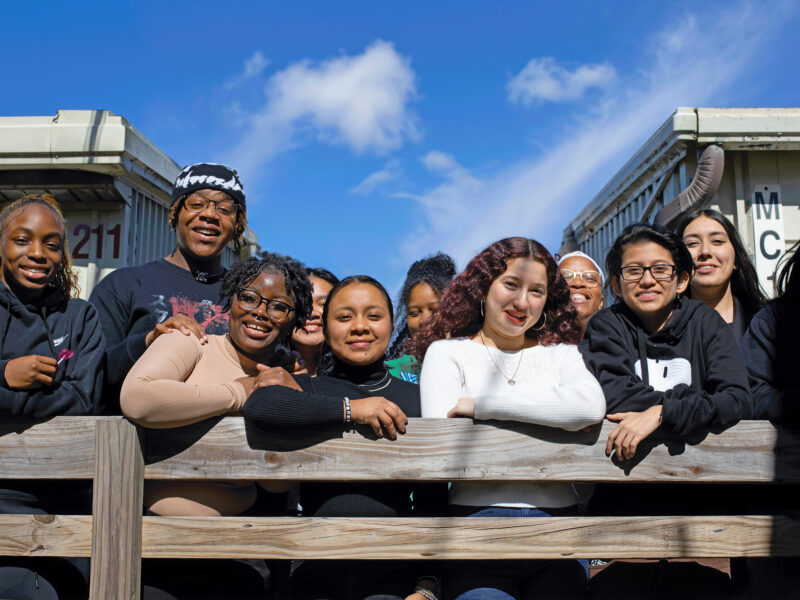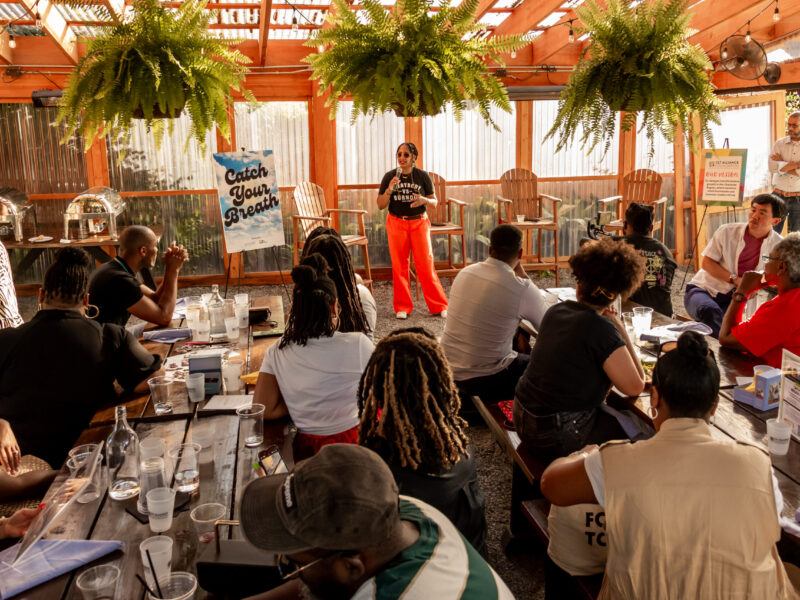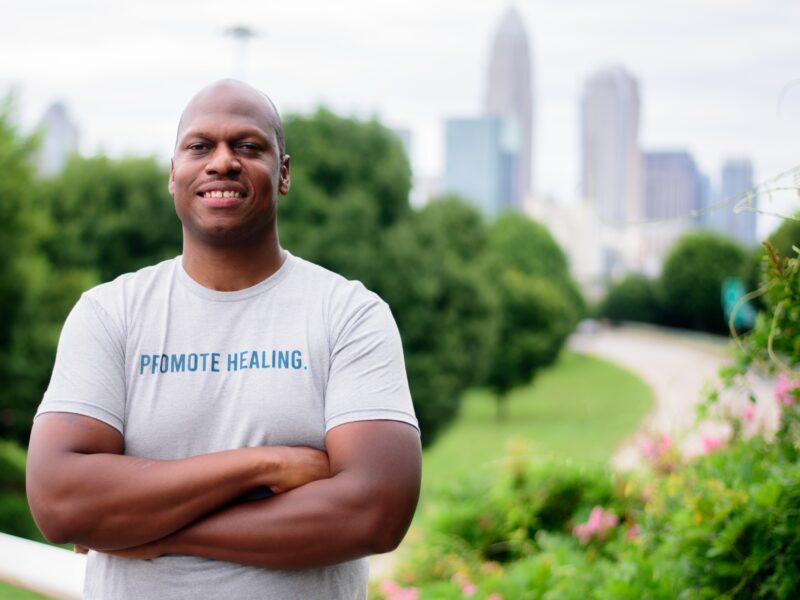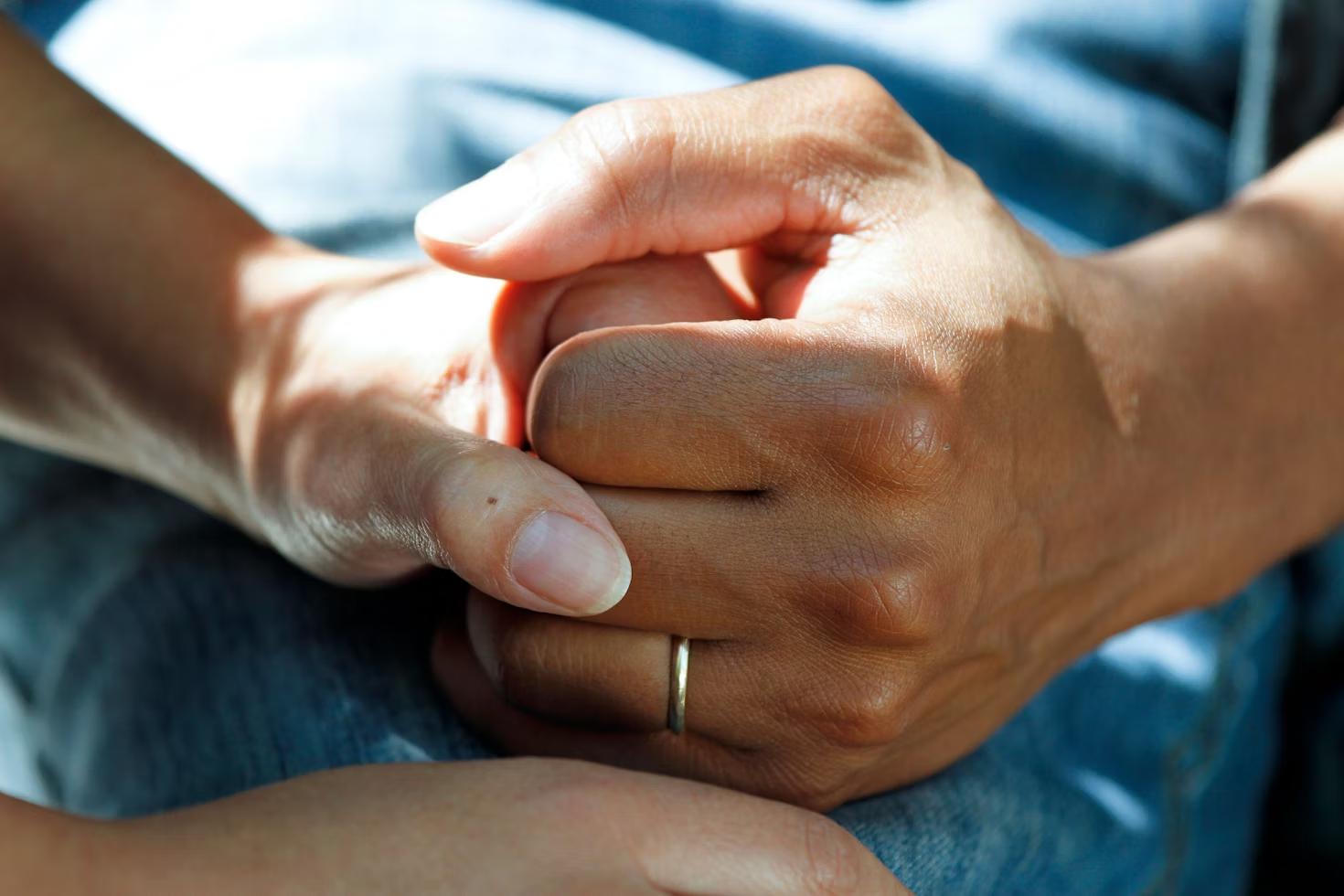
Hope Starts Here: The Human Impact of HopeWay
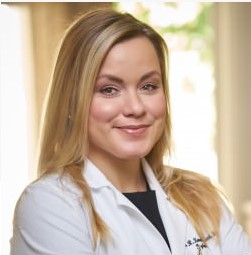
Dr. Alyson Kuroski-Mazzei, HopeWay’s founding CEO and Chief Medical Officer.
When Alyson R. Kuroski-Mazzei, DO, DFAPA, FASAM first learned about the vision for HopeWay, she knew it was something Charlotte desperately needed. At the time, there were no residential mental health treatment options. Families were either left with a short hospital stay or forced to send their loved ones out of state.
In 2016, Dr. Kuroski-Mazzei returned to North Carolina to become HopeWay’s founding CEO and Chief Medical Officer. With her expertise in psychiatry, forensic psychiatry and addiction medicine, she helped build a nonprofit dedicated to filling that critical gap. “Our model is about treating the whole person,” she explained. “Mental health, substance use disorders and physical wellness are all connected. At HopeWay, we make sure the entire person is cared for so that recovery can be lasting.”
Filling the Gaps in Care
Since opening its doors, HopeWay has grown into a national leader for evidence-based mental health treatment. With two different campuses in Charlotte, the nonprofit now serves children, adolescents and adults, and offers specialized services for Veterans and First Responders, and individuals with Eating Disorders.
In 2024 alone, HopeWay:
- Served 1,048 clients across all service lines.
- Opened a new campus dedicated to serving Teen Mental Health and Teen and Young Adult Eating Disorders, treating nearly 100 adolescents in its first year.
- Reported that 95% of clients surveyed would recommend HopeWay to someone they care about.
- Continued their work with Hope Community Clinic and the Novant Health Michael Jordan Family Medical Clinic providing psychiatry services as part of their health equity initiative, expanding access for those without insurance.
HopeWay’s programs extend beyond treatment. With an evidence-based approach, clients receive medical care, nutrition education, art and music therapy, family support, and so much more. While HopeWay is in network with many major insurance carriers, donor support allows HopeWay to maintain their standard of excellence by providing holistic and integrative care, maintaining a beautiful and serene campus, and offering financial assistance to those in need.
Community Partnerships that Nourish
HopeWay’s mission to “make HOPE tangible” includes looking at every factor that contributes to wellness — including food. In 2024, HopeWay partnered with Chef Sam Diminich and the Your Farms Your Table team to provide fresh, nourishing meals for their adult clients, and those with eating disorders at the Teen and Young Adult Campus. Together, they prepare chef-driven, seasonal meals designed to support both physical and mental health. Clients, families and staff now share more than 100 fresh, nutritious meals daily, infused with locally grown ingredients and a focus on healing from the inside out.
A Place of Respite
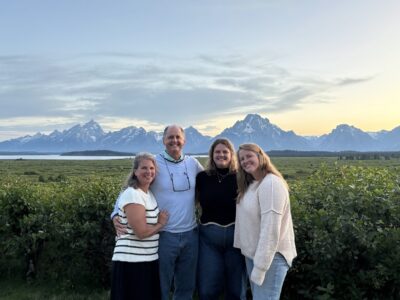
Meredith Sherrill and her family, whose journey with HopeWay has inspired their ongoing support and advocacy for mental wellness.
For many families, HopeWay is more than a treatment center — it’s a lifeline. Donor and advocate Meredith Sherrill, a longtime high school counselor, saw firsthand how few resources existed for teens in crisis. Then, in 2022, her own daughter needed support.
“HopeWay’s five-day-a-week program was lifesaving for our daughter and life-changing for our family,” Meredith shared. “What I admire most is that HopeWay does not feel institutional. It is a place of respite. Clients arrive burdened by stigma, but here they find dignity, community and real hope.”
Meredith and her husband now give annually and deliver fresh flowers to HopeWay each month — a small gesture that has become a symbol of care and encouragement for clients on difficult days.
Changing the Conversation
Beyond direct treatment, HopeWay has helped normalize conversations about mental health in Charlotte. Through education programs, events and advocacy, they reached more than 2,200 people last year. From professional athletes like Carolina Panthers Quarterback Bryce Young encouraging teens, to business leaders openly discussing mental wellness, the dialogue around mental health is shifting.
“People are now more open and transparent,” Dr. Kuroski-Mazzei said. “They’re starting to talk about mental health the same way you’d talk about other medical issues. That’s a huge step toward breaking stigma.”
Looking Ahead
As a proud nonprofit fundholder with Foundation For The Carolinas, HopeWay has built a strong foundation of community support to sustain and grow its mission. Looking to the future, the organization aims to expand its reach to continue to meet the growing needs of our community.
For Dr. Kuroski-Mazzei, the journey remains a personal one. Having seen how mental health challenges have affected her own family, she calls leading HopeWay “a dream come true.” “This was a once-in-a-lifetime opportunity to build a program that truly supports recovery and wellness,” she reflected. “Thanks to the loyalty of our donors, the compassion of our staff and the resilience of our clients, HopeWay continues to shine as a place where healing begins, and hope is real.”
HopeWay was a panelist for FFTC Connects: The Future of Mental Health. To listen to the full conversation, visit our YouTube page. To learn more about HopeWay or to support their work, visit hopeway.org.


